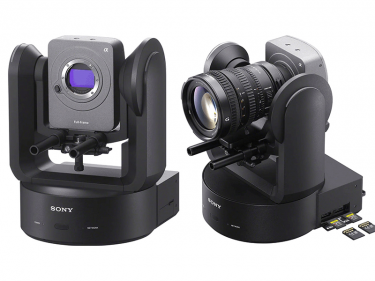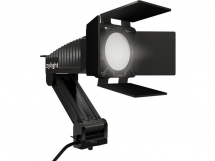| Українська | English | |||||||||||
|
|||||||||||
| News | About company | Service-centre | OB Van/SNG Rental | NextGen Energy Solutions | Contact us |
|
|
Engineering Service, Inc.
» News News Cinema PTZ cameras armed with full-frame sensors sound like a legit idea that might be requested as well. However, when analyzing the options and possibilities regarding the utilization of cinema PTZ cameras, we ended up asking ourselves — For what is it good for?
Cinema Line PTZ A week ago, Sony has launched a very interesting product, which is a PTZ (Pan-Tilt-Zoom) camera, that owns a full-frame sensor and can shoot Internal XAVC/External RAW. This model titled FR7 was designed as a part of Sony’s Cinema Line that consists of FX3, FX6, FX9, and the mighty VENICE. As stated in the press release: “A high-performance full-frame image sensor and the expressive scope of Sony’s extensive E-mount lens lineup work with remote pan/tilt/zoom control, high flexibility in zoom capability, and wide-angle shooting to break through location and space limitations. It also offers the cinematic look and operability that have made Sony digital cinema cameras leaders in the movie industry, plus versatile connectivity and efficient multi-camera workflow support”. But what’s the goal of the FR7? Well, Norbert Paquet, Head of Live Production, Sony Europe elaborated: “ The cinematic look and feel is fast becoming the norm in broadcasting and live production as it opens up new ways to tell a narrative. In parallel, especially in the last 2 years, we’ve seen a steep rise in content created remotely or in small locations where access is difficult. This new camera, the FR7, will answer both these trends in the market with its PTZ and Cinematic features”. So there you go PTZ with cinematic features, that are operated remotely, especially in tight locations. Possible implementations If so, the FR7 stands out with its cinematic features, as other PTZs are capable of being operated remotely, and in tight locations. But what are those cinematic features? Well, basically two: RAW/high-bit codec, and full-frame sensor. Nevertheless, we need to ask ourselves if these characteristics will grant the cinema PTZ decent advantages in various shooting environments. The best way to approach that question is to watch the demo shot by Sony on the FR7. First, in our opinion, the image doesn’t look cinematic at all. Yes, there’s a very shallow DOF (Depth Of Field), however, it’s not a definite mark for cinematic imagery. There’s no doubt that the large sensor contributes dramatically to the shallow DOF, however, a long lens can do the same as well. Honestly, the Zoom action indicates to us that this is a PTZ camera, as dollying is much more cinematic than zooming, which reminds us of TV productions rather than cinema productions. Which productions will use cinematic PTZ? It’s a good question. We can barely see the logic of using FF PTZ in commercials and movie productions. It’s hard to shoot a narrative with PTZ unless it’s an integral part of the story. In this situation, why use cinema PTZ with its numerous kinetic limitations when you can shoot with regular/real cinema cameras? However, in productions where you can’t access the camera, like Big Brother, then the FR7 would fit perfectly, as long as you can watch all that cinematic goodness on a decent TV. But, on the other hand, those reality shows contain a huge amount of footage, and we should feel sorry for the editors who need to edit tons of raw/high-bit materials. Closing thoughts Cinema PTZ (aka full-frame PTZ) cameras are ahead of their time. They are kinetic restricted, the zoom degrades the cinematic look & feel, and the bitrate is higher than ‘regular’ PTZ. Indeed, the potential is huge, just not for now. It’s a good gimmick though. Let’s wait and see what talented directors will do with them. « To the list of news |
|
|||||||||||||||||
 |
+38 (044) 593-18-20 +38 (073) 593-18-20 +38 (096) 532-96-82 +38 (095) 532-96-82 Service center Telegram @Engineer_Service |

|
|
|||||
 |
e-mail: engineer-service.tv 15 Vavylovykh str., Kiev, 04060, Ukraine Authorized service centre of Panasonic, Sony, JVC, Fujinon, Canon |
|||||||








